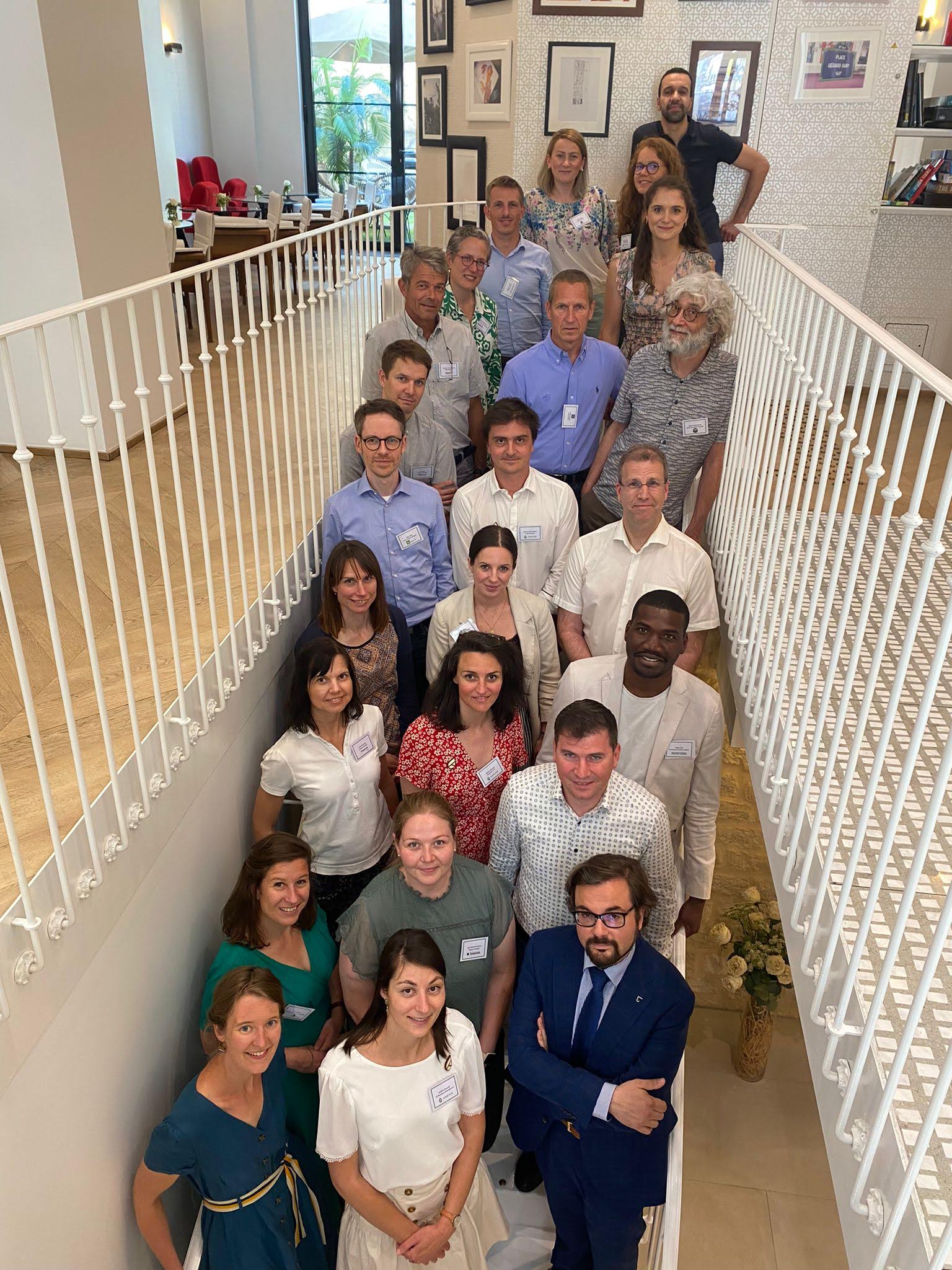As the curtain rises on 2025, it’s the perfect moment to reflect on Sylplant’s impressive presence throughout the past year. In its inaugural year, the project made a powerful impact, with partners participating in numerous high-profile conferences and events. These occasions served not only to showcase Sylplant’s groundbreaking work and initial results but also to spark critical conversations about the project’s role in addressing pressing eco-industrial challenges.
From advancing sustainable practices to exploring innovative bio-based solutions, Sylplant has emerged as a key player in driving change.
Let’s take a closer look at the major events that defined 2024.
BIOFACH 2024 – February 13–16, Nuremberg, Germany
SylPlant made its mark at BIOFACH 2024, the premier global trade fair for organic food. Represented by partner biozoon GmbH, the project highlighted its innovative contributions to the bioeconomy.
ChemTech Invest Day – February, Paris, France
SylPlant took center stage at ChemTech Invest Day, hosted at Bpifrance’s headquarters in Paris. Represented by Bioeconomy For Change at the EU booth, the project showcased its role in Europe’s bioeconomy landscape. The event, dedicated to chemistry-focused startups, provided a prime opportunity to explore funding avenues, foster connections, and highlight the impact of collaborative innovation in the sector.
BIOKET 2024 – March 19–21, Reims, France
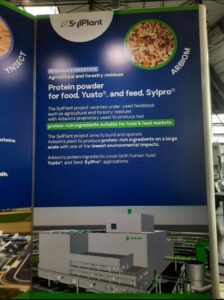 SylPlant took the spotlight at BIOKET 2024, the international conference on bioeconomy technologies organized by Bioeconomy For Change. At the Circular Bio-based Europe Joint Undertaking stand, attendees explored funding opportunities and discovered flagship projects, including SylPlant. The event also featured the premiere of SylPlant’s official video and showcased innovative protein ingredients developed by Arbiom.
SylPlant took the spotlight at BIOKET 2024, the international conference on bioeconomy technologies organized by Bioeconomy For Change. At the Circular Bio-based Europe Joint Undertaking stand, attendees explored funding opportunities and discovered flagship projects, including SylPlant. The event also featured the premiere of SylPlant’s official video and showcased innovative protein ingredients developed by Arbiom.
Fish Nutrition Workshop – Wageningen, Netherlands
SylPlant was represented at the Fish Nutrition Workshop, a key gathering for the aquafeed industry. BioMar’s Maja Erichsen presented research on single-cell proteins in Atlantic salmon farming, highlighting SylPlant’s contributions to sustainability and fish performance.
SIA 2024 – March, Paris, France
SylPlant took the stage at SIA 2024, hosted by La Ferme Digitale, with a conference on scaling sustainable protein production. Arbiom’s Marc Chevrel and Charles-Henri Nicolas shared insights on advancing yeast fermentation from proof of concept to industrialization.
The Big Meet & Gastronord – April, Stockholm, Sweden
Arbiom represented SylPlant at The Big Meet & Gastronord, a leading food innovation event in Stockholm, following its #43 ranking in the 2023 FoodTech 500. The spotlight was on Yusto, Arbiom’s yeast-based protein ingredient, as chefs at the Test Kitchen incorporated it into inventive dishes—enhancing a zero-waste salad with an umami-rich dressing and adding depth to a vegetarian stew.
Interzoo 2024 – May 7–10, Nuremberg, Germany
SylPlant made its mark at Interzoo 2024, the world’s leading pet industry trade fair, with Amélie Drouault and Lucile Ducouret from Arbiom’s business team representing the project. They introduced SylPro, Arbiom’s sustainable yeast protein ingredient, and engaged with industry professionals on the future of pet nutrition.
General Assembly – Paris, France
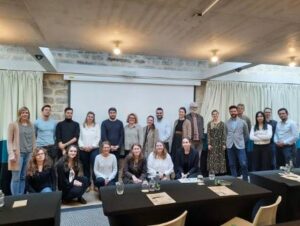 SylPlant’s partners convened in Paris for the project’s first in-person General Assembly since its launch in June 2023. The two-day event provided a chance to review progress, discuss completed tasks, and hold workshops on Life Cycle Assessment (LCA) and communication strategies. As the project nears its first-year mark, the assembly set the stage for future steps and reinforced the commitment to advancing SylPlant’s goals.
SylPlant’s partners convened in Paris for the project’s first in-person General Assembly since its launch in June 2023. The two-day event provided a chance to review progress, discuss completed tasks, and hold workshops on Life Cycle Assessment (LCA) and communication strategies. As the project nears its first-year mark, the assembly set the stage for future steps and reinforced the commitment to advancing SylPlant’s goals.
Marc Chevrel Discusses SylPlant on La Tribune – May 15, 2024
Marc Chevrel, CEO of Arbiom, shared insights on La Tribune about the SylPlant project and its role in sustainable food technology. He discussed the development of a state-of-the-art facility in southern Lyon for large-scale production of protein-rich ingredients, positioning SylPlant as a leader in sustainable protein sources.
You can also catch the interview on La Tribune’s website: https://bourse.latribune.fr/webfg/articles/la-matinale-de-l-entrepreneur/arbiom-marc-chevrel-reussir-la-transition-alimentaire–16782529.html?autoplay=1
Viva Tech – June, Paris, France
In June 2024, , Arbiom showcased the SylPlant project at VivaTech in Paris, held at the La French Tech Grand Paris village. The event, one of Europe’s largest tech conferences, provided a platform for discussing innovation in sustainable food systems. Arbiom’s team, including Marc Chevrel and Amélie Drouault, engaged visitors on the role of alternative proteins in future nutrition. A highlight was the visit from France’s Minister of Agriculture, Agnès Pannier-Runacher, who heard Marc Chevrel’s presentation on global food security and sustainability challenges.
EUBCE 2024 – June, Marseille, France
In April 2024, the SylPlant project was featured at the EUBCE in Marseille, where sustainability and biomass utilization were key themes. Charles-Henri Nicolas and Nils Rettenmaier represented SylPlant, with Nicolas presenting on yeast fermentation’s role in sustainable protein production. Rettenmaier discussed the importance of unconventional product applications for enhancing sustainability.
Aqua 2024 – August, Copenhagen, Denmark
SylPlant took center stage at Aqua 2024 in Copenhagen, a leading event for the aquaculture industry. Maja Erichsen, R&D Junior Scientist at BioMar, presented on the use of Torula yeast as a sustainable alternative for post-smolt Atlantic Salmon diets. Her research highlighted how this ingredient reduces reliance on soy protein, advancing sustainability in aquaculture feeds.
Protéines France Members Day – September, Amiens, France
SylPlant was showcased at the Protéines France Members Day in Amiens, a key event for the French protein sector. Madeleine de Colnet from Bioeconomy For Change presented on the growing importance of alternative proteins, highlighting SylPlant’s role in this shift. The event also offered Protéines France members the chance to visit industrial sites and participate in workshops focused on protein innovation.
SIAL Paris 2024 – October, Paris, France
Arbiom showcased Yusto at the SIAL Paris exhibition, unveiling a fresh packaging design for its innovative yeast-based product. Visitors were introduced to Yusto’s potential in cooking, generating excitement for its role as an alternative protein. Arbiom was also selected as one of 16 finalists in the SIAL Innovation contest, competing against over 2,000 products for the Public Choice Award. Chef Marion ESTEVE from the Institut Lyfe Research delighted attendees with Yusto-based recipes, highlighting its culinary versatility.
Forest-Wood Industry Innovation Day – November 7, Paris, France
Arbiom participated in the Forest-Wood Industry Innovation Day at Bpifrance in Paris. Charles-Henri Nicolas, Project Director at Arbiom, joined Round Table 4 on “Wood: A Material with Numerous Applications.” Organized by Xylofutur, the event brought together leaders from the forest-wood sector to explore innovations in bioeconomy, circular economy, and climate adaptation.
Greener Manufacturing Conference – November 13–14, Cologne, Germany
At the Greener Manufacturing Conference & Expo 2024, SylPlant was featured at the CBE JU booth alongside nine other innovative projects. Bioeconomy For Change, the project’s communication leader, showcased Yusto and SylPro, yeast-derived protein ingredients for food and feed.
European Commission Workshop – November 12, Brussels, Belgium
Charles-Henri Nicolas, Project Director at Arbiom, participated in the European Commission’s workshop on bio-based innovations in the food industry, focusing on fermentation. The workshop explored the potential of biomass, precision, and gas fermentation in scaling sustainable food production. Discussions covered market development, public acceptance, and scaling strategies, offering key insights into the future of bio-based food solutions.
SylPlant at Food Paradigm – December 2024
On December 2, 2024, Arbiom took center stage at STATION F in Paris for the Food Paradigm event, organized by EIT Food and ShakeUp Factory. SylPlant was proudly featured at the event, with a dedicated stand presented by Arbiom. The showcase highlighted SylPlant’s groundbreaking approach to transforming natural resources into sustainable food ingredients, focusing on Yusto®, an alternative protein poised to reshape the future of food.
To conclude, the project gained widespread attention at major industry events, including BIOFACH and SIAL Paris, where it showcased groundbreaking protein products. It also made waves in aquaculture and biomanufacturing at events like Aqua 2024 and the Greener Manufacturing Conference, positioning itself at the heart of industry conversations. A standout achievement was the launch of Yusto®, a yeast-based protein that is set to revolutionize food production. SylPlant’s unwavering commitment to sustainability and cross-sector collaboration has firmly established it as a leader in the bioeconomy.


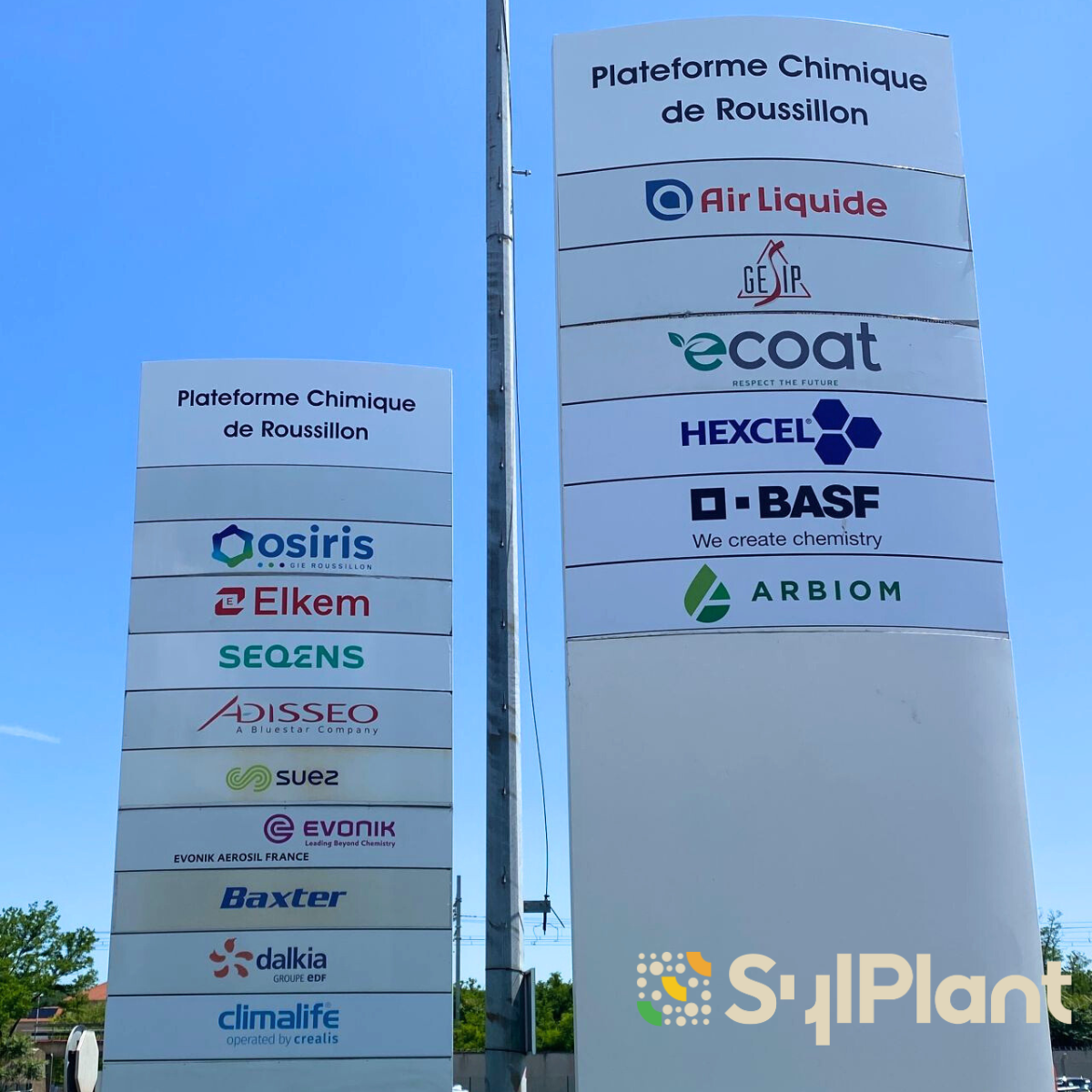



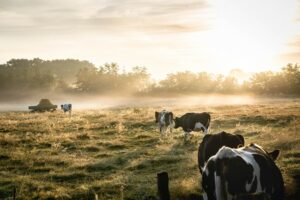 The European Union consumes around 71 million tons of raw protein
The European Union consumes around 71 million tons of raw protein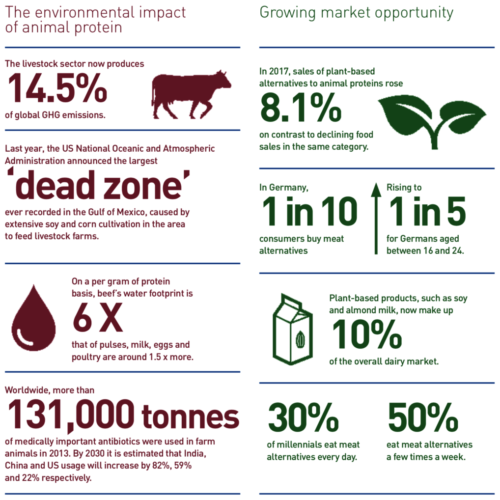
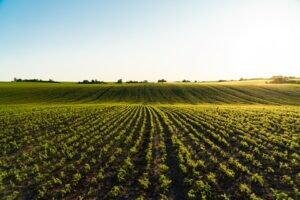 As Europe embarks on a quest to renew its model of protein production and consumption, plant-based proteins — such as peas, lentils, and soy — are emerging as both a sustainable and promising solution for the future. Less demanding in terms of land, water, and energy than their animal counterparts, these proteins stand out for their ability to generate significantly lower greenhouse gas emissions. Their integration into our diets is not just a trend; it is positioned as an essential strategy for mitigating the carbon footprint of the European food system.
As Europe embarks on a quest to renew its model of protein production and consumption, plant-based proteins — such as peas, lentils, and soy — are emerging as both a sustainable and promising solution for the future. Less demanding in terms of land, water, and energy than their animal counterparts, these proteins stand out for their ability to generate significantly lower greenhouse gas emissions. Their integration into our diets is not just a trend; it is positioned as an essential strategy for mitigating the carbon footprint of the European food system.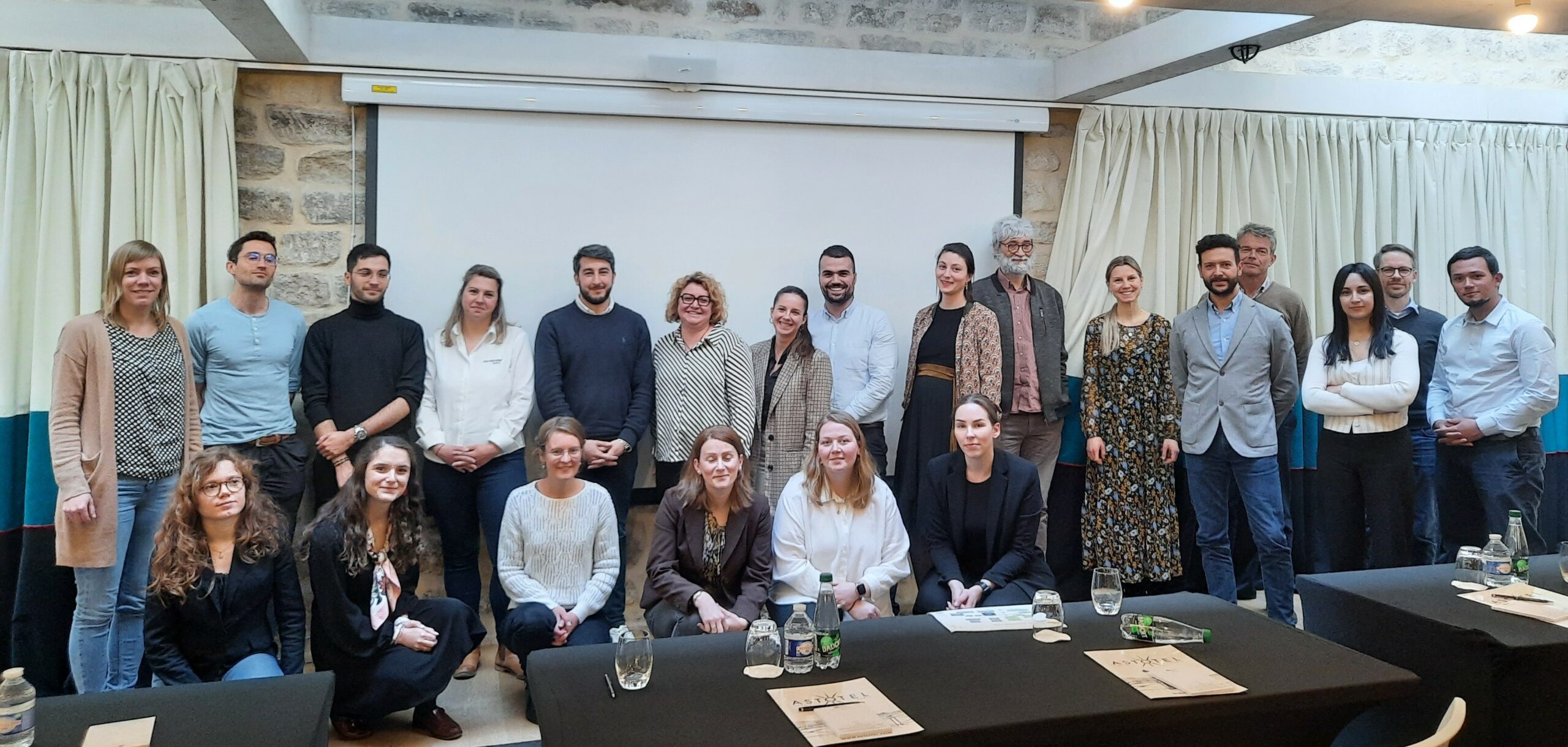
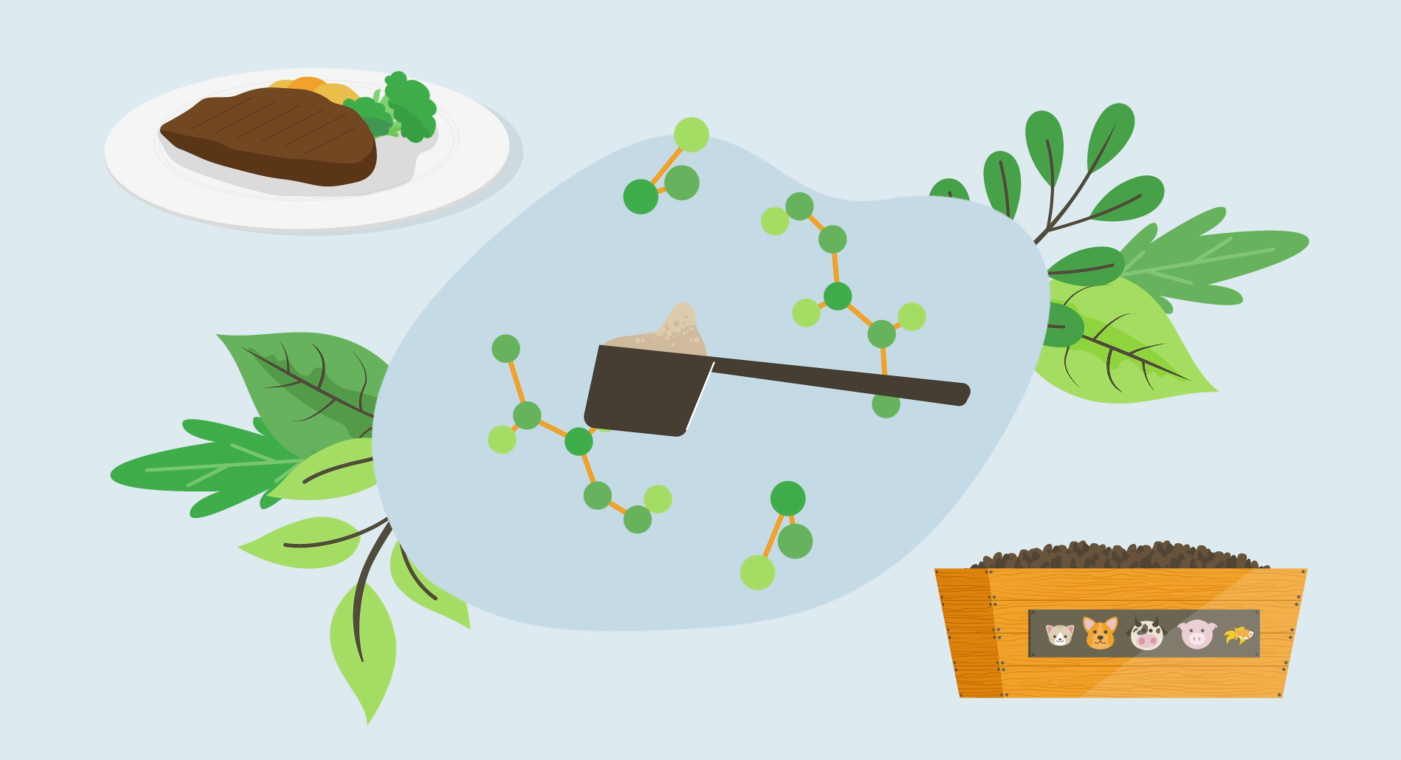
 The SylPlant project proudly unveiled its first official video at the bioeconomy conference BIOKET in Reims, followed by a presentation at the project’s General Assembly in Paris. This dynamic motion design video provides a comprehensive overview of the SylPlant project, highlighting its pivotal role in advancing sustainable protein production in Europe.
The SylPlant project proudly unveiled its first official video at the bioeconomy conference BIOKET in Reims, followed by a presentation at the project’s General Assembly in Paris. This dynamic motion design video provides a comprehensive overview of the SylPlant project, highlighting its pivotal role in advancing sustainable protein production in Europe.
